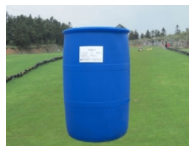In the process of surfactant promoted bioremediation, different types of surfactants will get different remediation results due to their different characteristics, and if the critical micelle concentration is not reached, the surfactant has no solubilization effect. If the concentration is too high, it may inhibit the microbial degradation. Therefore, in the actual remediation of soil, surfactant with good type and concentration should be used.

The application of biosurfactants is often beneficial in the near future. When biosurfactants are selected for bioremediation, new, efficient and low toxic biosurfactants should be developed. Carbon sources similar to the pollution sources should be selected to ferment biosurfactants. Low and effective concentration of biosurfactants should be applied directly to the oil contaminated environment Sex agent producing bacteria or bacterial agents are good choices to improve the repair efficiency. A kind of
Surfactants can improve the solubility of hydrophobic organic pollutants and increase the bioavailability of pollutants, so they are widely used in bioremediation of soil pollution.
In the solution, the surfactant exists in the form of molecular monomer. The surface tension of the solution decreases with the increase of its concentration. When the concentration increases to a certain value, even if the concentration increases again, the surface tension changes little. At this time, the surfactant combines with the ionic or molecular dispersion state to form a stable adhesive, which leads to the conductivity, osmotic pressure and other properties of the solution As shown in the figure, the low concentration at which micelles begin to form is called the critical micelle concentration, which is a major physical quantity to measure the surface activity of surfactants and their applications. A kind of
However, the extensive application of biosurfactants in bioremediation needs: 1) optimizing the screening, culture conditions and extraction methods of Biosurfactant Producing Bacteria; 2) genetic improvement of Biosurfactant Producing Bacteria by means of genetic engineering, in order to obtain high-yield bacteria and reduce the production cost of biosurfactants, biosurfactants are widely used in bioremediation However, the safety of genetically engineered strains released into the environment should be considered.